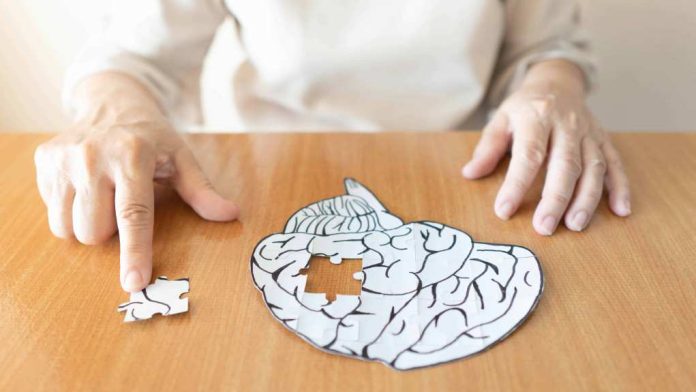
You may have heard some news recently about Alzheimer’s clinical trials. However, what are clinical trials and can they actually help with Alzheimer’s? Well, the answer may be a little deeper than you think but you could be in for a pleasant surprise. Before we talk about Alzheimer clinical trials specifically, it’s important to know the basics.
What are Clinical Trials?
Plain and simple: clinical trials are a type of medical research that include the involvement of people. There are two types of medical research that involve people. There are:
- Observational Studies
- Clinical Trials
The aim of these trials is to help science better understand a specific type of intervention. There are plenty of different types of interventions that are looked at with a clinical trial like:
- Behavioral
- Medical
- Surgical
What are Alzheimer’s Clinical Trials?
Like we said earlier, clinical trials involve people. Alzheimer’s clinical trials are no different. They need volunteers. When people volunteer for this type of clinical trial, they help researchers. These researchers are looking for a solution to find new ways to help in the fight against Alzheimer’s. Some of the ways volunteers can help researchers includes finding new ways to potentially:
- Diagnose Alzheimer’s disease
- Treat Alzheimer’s disease
- Prevent Alzheimer’s disease in the first place
What is Alzheimer’s Disease?
You want to make sure you understand what Alzheimer’s disease truly is when learning about clinical trial opportunities for this health condition! This disease is a type of brain disorder. It chips away at memory and the ability to use the brain to think and carry out simple tasks. As a result of this disease, the behavior and even personality of people can change. There are plenty of people with Alzheimer’s. In fact, over 6 million people in America have been diagnosed with this disease. Some of the symptoms of this disease include changes in how a person:
- Thinks
- Remembers
- Reasons
- Acts
The symptoms are known as dementia (which is also why you can see people referring to Alzheimer’s as dementia). However, other diseases besides Alzheimer’s can also cause dementia (but Alzheimer’s is the most common cause of these symptoms).
Benefits of Volunteering for an Alzheimer’s Clinical Trial
Individuals who take part in this medical study not only benefit the researchers, but they can also benefit themselves. Some of the pros that come along with volunteering for this type of clinical trial include:
- Getting new treatments (as well as medical care) that are not available to the public yet
- Learning and getting information on the disease
- Accessing supportive groups
- Helping other people who deal with this disease through offering better treatments and prevention methods moving forward
Who Can Take Part in These Clinical Trials?
Not everyone can take part in an Alzheimer’s clinical trial. Each clinic site is different so they will have a unique set of criteria depending on what they are trying to figure out. A good rule of thumb is that those who are 18 or older can be a participant. People who fit the following criteria could potentially participate:
- Healthy people with no symptoms if Alzheimer’s
- Those who have an Alzheimer’s diagnosis
- Individuals that are at-risk for developing Alzheimer’s
- Caregivers of those that have Alzheimer’s
How to Researchers Choose Participants?
It should come as no surprise that all studies have a process in place when picking participants. There are criteria that participants need to meet depending on what researchers are looking for. The screening process will vary but often looks at factors of the participant like:
- Age
- Health Conditions
- Medications
- Location
How to Find an Alzheimer’s Clinical Trial?
If you have an interest in participating in an Alzheimer’s clinical trial (or know someone who you think could benefit) then you are in luck. That’s because there are plenty of ways to find out about clinical trials near you. Some of the ways that you can find clinical trials include the following:
- Ask your healthcare provider
- Look online (there are a variety of websites)
- Put your name on a clinical trial registry
- Be on the lookout for ads on social media platforms (as long as they are legit!)
- Call the National Institute on Aging (NIA) at 800-438-4380 or email them at [email protected]
Are These Types of Clinical Trials Free?
Most of the time, yes! Remember, each clinical trial is unique. However, for a majority of the time, individuals will not have to deal with expenses when participating in a clinical trial. In fact, some clinical trials even offer those who participate with a payment (or stipend) just for being a part of the trial! When joining a clinical trial, you will want to make sure you understand the terms so you can have a clear understanding on what to expect.
Is Your Information Secure?
Absolutely. Researchers have the responsibility of keeping personal information (such as health information as well as other personal details) private. They must do this in order to follow federal laws! When studies share results, most of the time they only share the results that aren’t associated with a specific person (which basically means made anonymous). If you have questions about details with a study you are participating in (or wish to participate in) then you can ask the study coordinator.
What if You Join an Alzheimer’s Study Then Change Your Mind?
If you want to take part in a study but then change your mind, it’s okay! That’s because these clinical trials are 100% voluntary. That means you have the freedom of choice when deciding whether or not you want to take part in the clinical trial (even if you change your mind). You shouldn’t expect a penalty if you decide to withdraw.
Bottom Line
Clinical trials are a type of medical research that focus on the involvement of people. One specific type of clinical trial is Alzheimer’s clinical trials. The benefit that people can see when it comes to participating in these trials includes the following:
- Getting new treatments as well as medical care that are not available to the public yet
- Learning and getting information on the disease
- Accessing supportive groups
- Helping other people who deal with this disease through offering better treatments and prevention methods moving forward
Every clinical trial is different so that means the exact terms, conditions, criteria, etc, will vary. However, most of the time you can expect these trials to be free to participate in. In fact, some Alzheimer’s clinical trials could even pay for people to participate! If you want to find a clinical trial near you, then there are many ways you can do that. You can:
- Ask your healthcare provider
- Look online (there are a variety of websites)
- Put your name on a clinical trial registry
- Be on the lookout for ads on social media platforms (as long as they are legit!)
- Calling the National Institute on Aging (NIA) at 800-438-4380 or emailing them at [email protected]
Clinical Trials Out There: Alzheimer’s You may be in for a pleasant surprise to find out that there are Alzheimer’s clinical trials near you looking for participants.




























